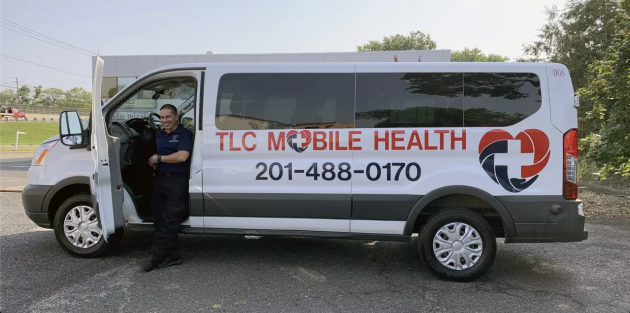
As simple as getting a ride to a healthcare appointment sounds, it’s not so easy for many. Studies routinely find lack of transportation as a barrier to receiving healthcare (in 2017, 5.8 million people in the United States delayed receiving healthcare services due to transportation barriers and that number since increased due to COVID-19). This social determinant of health (SDoH)–in this case transportation–overwhelming affects historically underrepresented populations , according to the National Library of Medicine. A lack of or unreliable transportation can lead to negative health outcomes as well as late-stage diagnosis of certain medical conditions, the U.S. Department of Health and Human Services reports.
And mental health is no different. Unreliable transportation was the most frequently documented SDoH for people seeking mental health services, specifically those with substance abuse, says the National Library of Medicine. “NEMT is particularly important for people with mental illness, since behavioral health services are the most frequently cited reason for using NEMT,” The National Alliance on Mental Illness (NAMI) states.
“For many, having reliable, affordable transportation to and from medical appointments can be a major hurdle to accessing mental health care. Each year, millions of people miss medical appointments due to unavailable or unaffordable transportation. This limits opportunities for individuals to manage their health needs,” (NAMI) reports.
Urgent mental health needs prompt TP provider to expand business
It’s statistics like these that led one Modivcare transportation provider partner to take action. Transportation Provider, Joaquin Torres, owner of TLC Mobile Health in Hackensack, New Jersey has been in the industry for 14 years and has witnessed the need for getting people to their mental health appointments.
“Mental health is one of those programs that’s been quiet for a while, but we don’t realize how many people really need help,” Torres says.
Substance abuse treatment among teenagers and adults, in particular, has become a growing service.
“In the old days, when a kid got caught smoking in the bathroom, he’d get suspended and that would be the end of it,” Torres says. “Now, here in New Jersey, they’re giving these kids drug programs. So you’re not getting suspended anymore, but every day after school for one or two months you’re going to this drug program, which we can get them to. Some clients get edgy and nervous when they don’t go to their programs, which can cause them to relapse. Once they go to their programs and get their treatment, they are good.”
Sometimes a ride is all they need to start feeling better, Torres says. “One client stopped going to his recovery program but after I spoke with him one day, he was so happy knowing it was us who could take him to his program again.”
A business name that supports healthcare
Torres changed the name of his business to TLC Mobile Health – Tender, Love and Care – to reflect the importance of transporting clients to their healthcare appointments, especially for mental health. And he grew his fleet of vehicles from seven to 20.
“My little motto is, ‘we’re not doctors, we’re not psychiatrists, but we are the first step to recovery,” Torres says. “When I first started, I didn’t know how many people really do use this type of service and how valuable it is to get back and forth to their programs. I feel good knowing we can help people get their recovery and stay calm.”
A success story brings joy
Mental health support also means simply encouraging the client to attend their appointments, regardless of the service type. One client for Torres stands out.
“I had a client who was in a wheelchair, in bad shape and wanted to refuse (cancer) treatment,” Torres says. “But I went to him every day and amped him up by saying, ‘You’re going to do this; you’re going to do this! One day, I’m going to see you running!’”
Torres saw improvement and eventually his client began walking with a walker.
“One day I went to check on him and he’s walking independently,” Torres recalls. “The hug this guy gave me was worth more than a million dollars and (he) said to me ‘if it wasn’t for you, I wouldn’t be here right now.’”
A ride can make all the difference
Mental health services are increasingly in demand (the CDC reports that more than 50% of Americans will be diagnosed with a mental illness or disorder in their lifetime). Therefore, getting access to these services is paramount, and transportation providers, like Joaquin, are making it a reality.
SHARE
RESOURCES